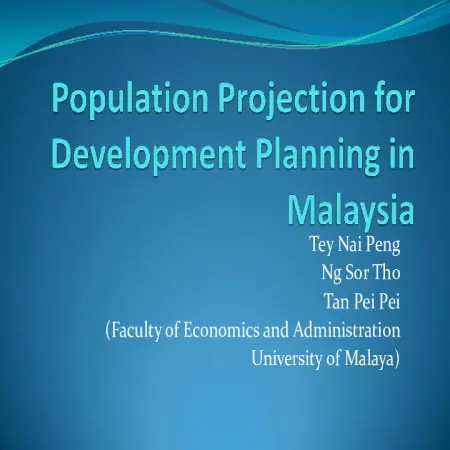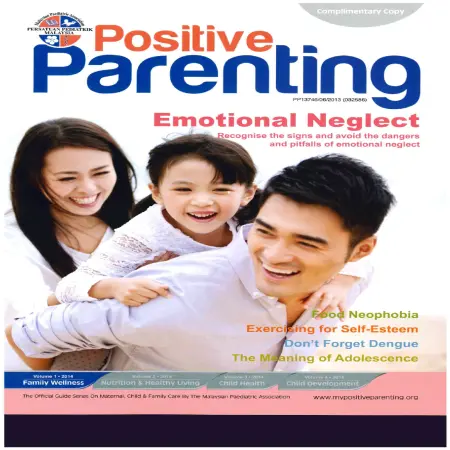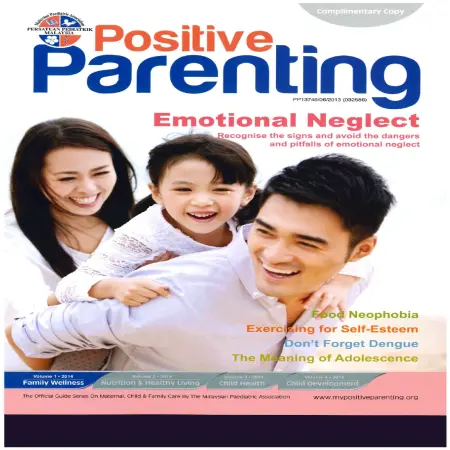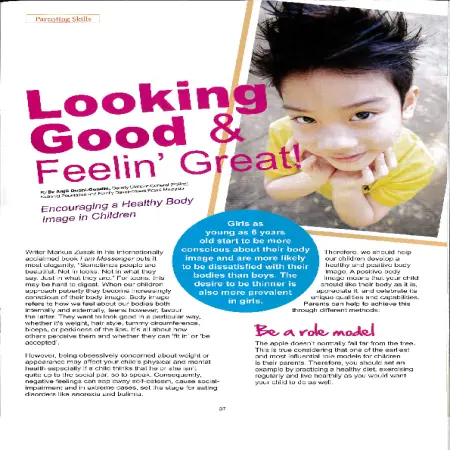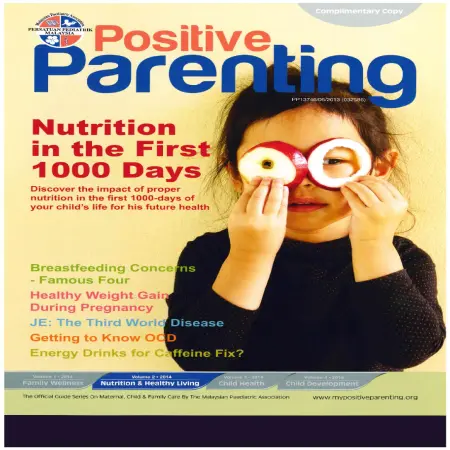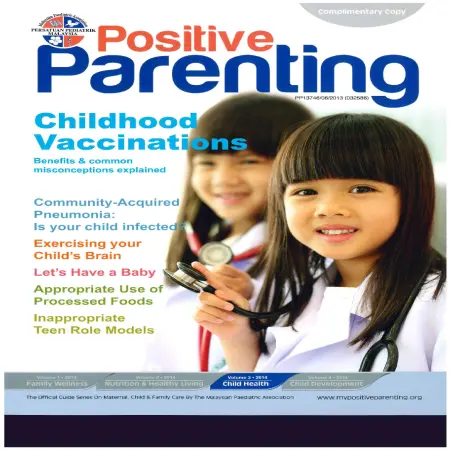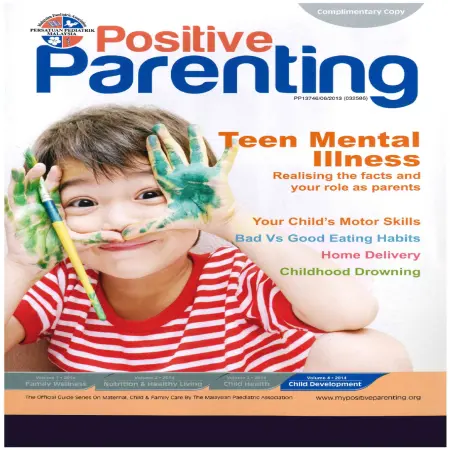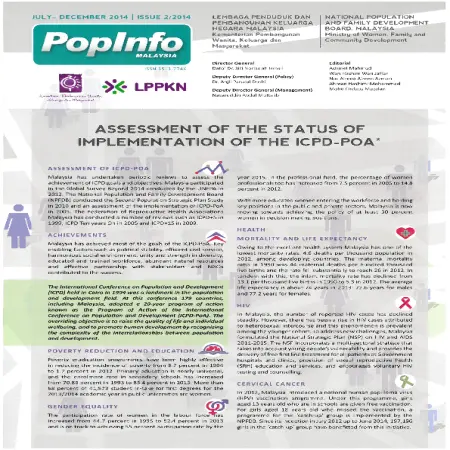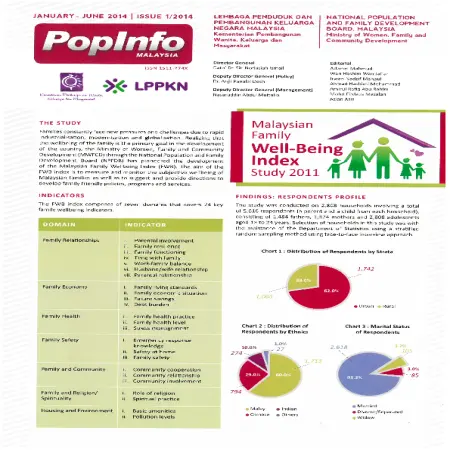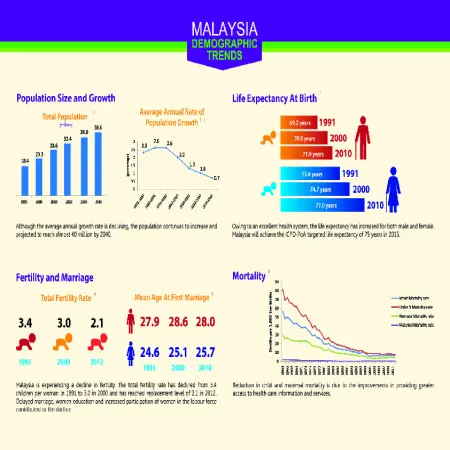Browse by Year
Results for Year : "2014"
|
|
Population projection for development planning in Malaysia
Item Type: Conference or Workshop Item
Editor:
Year: 00/00/2014
Abstract: The purpose of this paper is to identify the data needs, and provide projected population figures, disaggregated by age and other characteristics, which may be used by planners from the government and the industry for planning purposes. Specifically, the paper seeks to illustrate the requirements for education, health and economic sectors in terms of human resources, infrastructure and expenditure to meet the needs of the population.
|
|
|
|
|
|
Sharing responsibilities
Item Type: Article
Editor:
Year: 00/00/2014
Abstract: Traditionally, women have assumed the role of the caregiver, while husbands sought to provide financial support for their families. Society has come a long way since and women are now leaders and working professionals in their own right.
Increasingly, the domain of marriage is becoming a partnership between husband and wife. Household responsibilities and domestic affairs are no longer a one-way street, but are managed together and shared.
|
|
|
|
|
|
Defining child abuse and neglect
Item Type: Article
Editor:
Year: 00/00/2014
Abstract: Abuse and neglect are terms that are often used interchangeably. However, these terms represent two different types of abuse- abuse occurs when a person acts against a child (e.g. physical abuse) while neglect occurs when a person fails to act for a child (e.g. leaving a child at home without care.
|
|
|
|
|
|
Outsourced parenting
Item Type: Article
Editor:
Year: 00/00/2014
Abstract: Housemaids have become an integral part of family life in Malaysia, some may say it’s a necessity – they provide much needed support to parents who often don’t have extended family around to assist with childcare or dual career parents who are often left with little choice and require help as well as support to carry out their family responsibilities.
It’s fair to say that commitment and devotion towards a successful career and rearing a child requires both sacrifice and no small amount of resolve and effort for either to work out in tandem. These and other factors prompt most parents to employ a housemaid, helper or caregiver to assist them in carrying out their roles and responsibilities. The notion being that maids would provide assistance to much needed help around the house and allow parents more freedom and time to spend with their children.
From things like potty training, to swimming and riding a bicycle, from learning not to bully other kids to learning from mistakes and forgiving other people for them. All these are lessons that can be outsourced to maids, helpers or even professionals. But just because it can, doesn’t mean that it should.
|
|
|
|
|
|
Hassle free travel with your kids
Item Type: Article
Editor:
Year: 00/00/2014
Abstract: Pick a destination with something for everyone to enjoy. A tour may seem like an easy way to see everything, but take it easy and don’t pack your tour schedule with too many activities especially if you have babies and toddlers with you. The key is to remain flexible.
|
|
|
|
|
|
Bringing up mentally challenged children
Item Type: Article
Editor:
Year: 00/00/2014
Abstract: Children who are mentally challenged are often referred to as being intellectually disabled. It is characterized by below-average intelligence or mental ability (i.e. learning, reasoning, problem solving, etc.) and a lack of adaptive behaviour required for day-to-day living (i.e. interpersonal skills, self-esteem, ability to follow rules/obey laws).
Numerous factors can facilitate its onset, but more noticeably; genetic predisposition (i.e. Down Syndrome), complications during pregnancy or childbirth (substance abuse), injury (i.e. near drowning), trauma (i.e. severe parental neglect) or an infection (i.e. meningitis).
|
|
|
|
|
|
Assessment of the status of implementation of the ICPD-POA
Item Type: Newsletter
Editor:
Year: 00/00/2014
Abstract: The International Conference on Population and Development (ICPD) held in Cairo in 1994 was a landmark in the population and development field. At this conference 179 countries, including Malaysia, adopted a 20-year program of action known as the Program of Action of the International Conference on Population and Development (ICPD-PoA). The overriding objective is to raise the quality of life and individual wellbeing and to promote human development by recognizing the complexity of the interrelationships between population and development. Malaysia has achieved most of the goals set in the ICPD-PoA. Key enabling factors such as political stability, efficient civil service, harmonious social environment, unity and strength in diversity, educated and trained workforce, abundant natural resources and effective partnership with stakeholders and NGOs contributed to the success.
|
|
|
|
|
|
Malaysian family well-being index study 2011
Item Type: Newsletter
Editor:
Year: 00/00/2014
Abstract: Realizing that the wellbeing of the family is the primary goal in the development of the country, the Ministry of Women, Family and Community Development through the National Population and Family Development Board (NPFDB) has pioneered the development of the Malaysian Family Wellbeing Index (FWB). The aim of the FWB index is to measure and monitor the subjective wellbeing of Malaysian families as well as to suggest and provide directions to develop family friendly policies, programs and services. The study was conducted on 2,808 households involving of 5,616 respondents. Through this study, the Family Wellbeing Index (FWB) was recorded at 7.55 out of a maximum score of 10 indicating that Malaysian families have a relatively high level of wellbeing and are able to manage the challenges of development. Of the seven domains identified, the Family and Religion / Spirituality domain recorded the highest score of 8.25.
|
|
|
|






